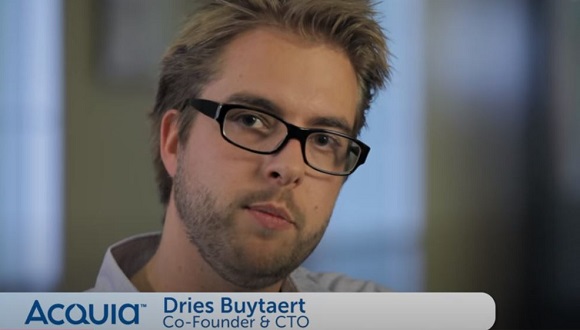Acquia & friends: open source and the COVID-19 pandemic
When you’re in the middle of a global pandemic and the COVID-19 (Coronavirus) contagion has drastically altered a massive proportion of the aspects of life around you… then that old chestnut the ‘press conference’ goes flying out the window.
As many companies have taken to online collaboration platforms and various forms of video conferencing, so the press conference (and indeed the industry convention) has moved to a web-based virtual version of itself.
This week was no exception and the Computer Weekly Open Source Insider blog packed its virtual bags and headed off to engage with Acquia for an event specifically titled: open source and the COVID-19 pandemic.
This event was hosted by moderator Dries Buytaert in his capacity as CTO and co-founder of Acquia. The company provides enterprise products, services and technical support for the open source web content management platform Drupal.
Other panelists are listed as follows:
- Dan Eiref, senior director of product management at Markforged.
- Debbie Theobold, CEO of Vecna Technologies.
- Jim Webber, in his role as chief scientist at Neo4J.
- Ali Ghodsi, CEO, Databricks.
With the ‘questionable openness’ of the data model used by the UK government for the forthcoming COVID-19 track and trace app, the use of open technologies in the healthcare research space has never been in sharper focus.
Aquia reminds us that many open source projects are working hard to conquer COVID-19. So the panelists congregated (as noted above) including Markforged who are 3-D printing face shields and The Robot Report who are developing automated manual resuscitators to ease the burden on healthcare workers.
The conversation was intended to look at how open source can help tackle COVID-19 testing, information sharing, data collection and how open source companies can encourage developers to find solutions to a variety of problems related to the pandemic.
Panel discussion
Buytaert explained that his firm’s Drupal technology had originated because he initially ‘had an itch to scratch’, but that pretty soon he realised and saw ‘the value in sharing’. He pointed out that Acquia has worked with government, healthcare and non-profits to contribute its technology during the COVID-19 pandemic.
Neo4J’s Jim Webber noted that his firm has been involved with various COVID-19 related projects. One is a crowdsourced knowledge graph that aims to pull a whole bunch of disparate data together and bring them together. He also noted a healthcare provider in New York that has worked with graph technologies to identify where there are low-income areas (that are also high-need communities)… and be able to coalesce all that information to be able to bring doctors and nurses to where they need to be at the right time in order to help people. It’s all about creating a means of accessing and, crucially, understanding multi-dimensional data… clearly something that graph databases are particularly well suited to.
Databricks CEO Ali Ghodsi was next to speak and he quite quickly noted that his firm is out to help data teams solve the toughest problems (like, umm, well, what we have now of course). Databricks is highly involved with organisations and hospitals in the fight against the disease. Datasets in Databricks Community Edition has been made free for data scientists working to help solve solutions of all kinds that will communities in relation to the pandemic. The company has also staged a hackathon to specifically look for data-driven solutions that will help us all.
Markforged Dan Eiref dialed in from his home in Boston, Massachusetts to explain how his company doesn’t ‘normally’ work on 3-D printing for the medical industry… but literally ‘overnight’ the firm’s engineers switched to working out how they could create 3-D printed face shields. He noted that almost immediately afterward the firm got requests from up to 10,000 users of its products asking for engineering instructions so that other people could produce them. A second project from the company sees them work to look at how they could help produce the ‘nasal testing stick/swabs’.
Finally, in the panel session here, we heard from CEO of Vecna Technologies. As a healthcare information and robotics company, Vecna has a trust body that looks to take some of the products it supplies to the first world more widely out to aid charitable causes in the third world. She noted that infection control professionals around the world needed a way of tracking events that are happening in hospitals. The firm’s patient triage system is heavily reliant on data intelligence and helps the flow of processes in these facilities happen more rapidly. The Ventiv low-cost alternative ventilator (in collaboration with the MIT E-Vent team) also stems from Vecna and is hoped to be an answer for healthcare operations where a fully-blown ventilator would be cost-prohibitive.
As a takeaway here… Buytaert brought the discussion together and said that we do need to realise that open source methodologies (and the essential community contribution and openness factor) has a lot to bring to situations like COVID-19, but there will also be limitations and areas where we need to take extra care. We don’t, for example. want to give every home user in the world the ability to be able to 3-D print medical swabs..
So open can help us get better from COVID-19, just be careful what you stick up your nose and keep washing your hands.




